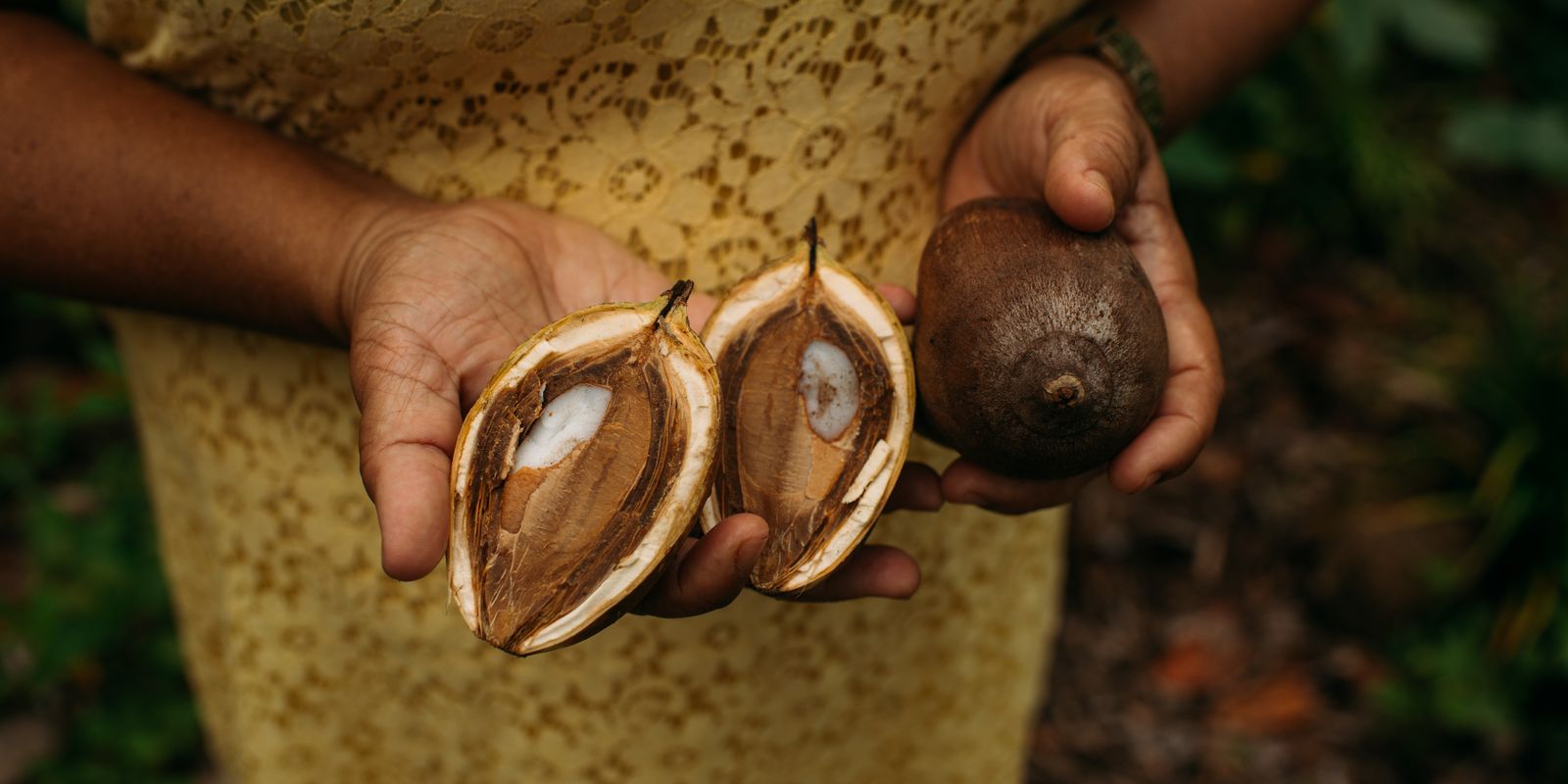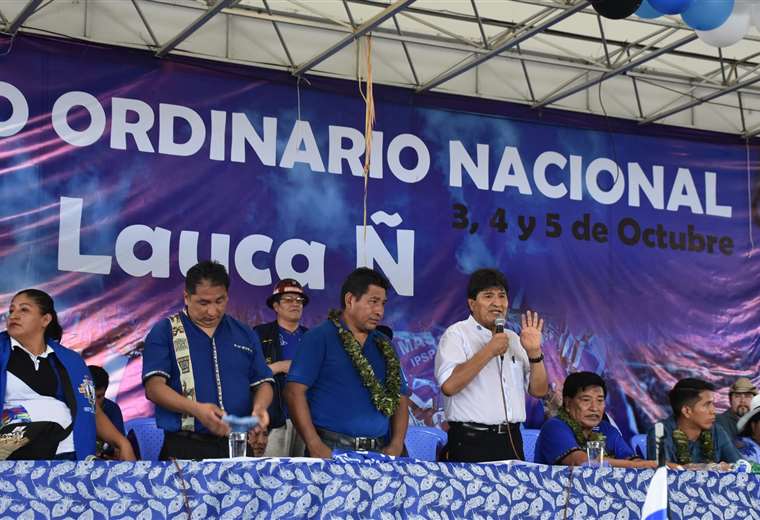Community funds have increasingly become a support tool in the fight to guarantee the rights of traditional, indigenous, riverside people, community groups and organizations, among others.
This is the case of the Babaçu Fund, which has financed babassu coconut breaking initiatives in Maranhão, Piauí, Tocantins and Pará. The money finances socio-environmental actions aimed at food and nutritional security and income generation, conservation of socio-biodiversity existing in babassu forests and in the fight for land.
Community funds are funds created within social movements to support the movements’ own initiatives. In summary, it can be said that, unlike other funds and forms of financing in which the allocation of resources is generally defined by the financing body, in community funds the decision is made by the movements based on the identification of the needs of the territories.
These are funds from communities for communities, in which support mechanisms are adapted to local realities. In general, these funds support small initiatives related to the agendas of these movements, as in the case of the Babaçu Fund.
Created in 2012, by the Interstate Movement of Babaçu Coconut Breakers (MIQCB), its objective is to promote access to resources for agricultural and extractivism actions on an agroecological and economic-solidarity basis on a non-refundable basis.
Formed by more than 300,000 female rural workers who live as a result of babassu extraction, the MIQCB emerged from the struggle of the breakers for free movement on their lands, often surrounded by cattle ranchers, who prevent the collection of coconuts.
From the management of the babassu palm tree, the breakers produce olive oil, soaps, handicrafts, charcoal, among other products. In addition to contributing to environmental protection and the ways of life of traditional people, knowledge about the management of babassu trees is passed down from generation to generation. Many coconut breakers are family farmers and quilombolas.
Currently, the fund has an open call for proposals worth around R$1.6 million to support projects by groups or community organizations working in agro-extractive communities of babassu coconut breakers. The Notice has financial support from the Amazon Fund and the National Bank for Economic and Social Development (BNDES).
It also allocates resources to support food and nutritional security actions and income generation to improve the quality of life of traditional peoples and communities and other communities that live under family production in the babassu forests.
Territory
One of these initiatives is a project by horticulturists in São Domingos do Araguaia, in Pará. The project aims, in addition to supporting food security, to promote sustainability, preservation of the environment and strengthening the territorial identities of the Quebradeiras, whose struggle general is for access to and possession of their territories.
The focus on the fight for land is the fund’s newest initiative. According to MIQCB lawyer Renata Cordeiro, since 2022 the fund has had a financing line for projects in territories that are struggling for land regularization or free access to babassu plantations, in other words, it has more to do with territorial protection.
“It’s something very hot in Brazil, which will even allow us to sign cooperation agreements with land bodies to speed up blocked processes. Based on this support, we are working on recognition based on some document, with legality, valid legality, a title, the regularization of collective territories of babassu coconut breakers”, Renata told Brazil Agency.
Some of these initiatives are aimed at drafting legislation at both the municipal and state levels, recognizing the right of the breakers to their territories.
“We have already managed to establish this in a state law in Piauí and we are moving forward, from 2022, to regularize the second territory, where the definitive title of property comes out collectively and it is recorded that there is a traditional community of breakers of babaçu coconut”, he continued.
“We are also discussing with the federal government, with the MDA [Ministério do Desenvolvimento Agrário]with MMA [Ministério do meio Ambiente e Mudança do Clima]the creation of a legal standard that supports us to also do this in situations in which the Union is either allocating its land or expropriating it. And this support from the Babaçu Fund has enabled us to move forward in this too”, stated Renata.
In Maranhão, one of these initiatives is located in the community of Santa Severa, located between the municipalities of Viana and Cajari, in the Baixada Maranhense region. There, a group of coconut breakers accessed the Babaçu Fund’s notice to develop actions aimed at territorial strengthening.
“It’s a community made up of quilombola people, but which also involves the union [de trabalhadores e trabalhadoras rurais]that is, they are rural workers, and they are extractivists, they are coconut breakers. Based on this profile of agroextractivists, they proposed a project in the production line, which is directly related to the sustenance of these families, but is also a form of territorial strengthening as they manage to remain there, in the territory, to legitimize the occupation, to legitimize the traditional way of using forests, soil, water, and which allows us to take other actions in search of territorial guarantee, land regularization”, said the lawyer.
And it is precisely in the development of actions aimed at production and permanence in the territory that the fund is helping the breakers of the community of Tauri, in Itupiranga, Pará, to guarantee the title of their territory.
“They are women who break coconuts and are also riverside dwellers. Even to collect coconuts they have to cross the Tocantins River and they return in those very thin canoes full of coconuts, I don’t know how they don’t turn, or anything, to the place where there is their production area so they can break the coconut to extract the almonds and make the olive oil”, said Renata.
The project, carried out in partnership with the Zé Cláudio e Maria Institute, named in honor of the environmentalist couple murdered in Pará, focuses on the construction of an almond processing unit for the production of olive oil.
Through this organization, women were able to present a project for the Babaçu Fund because MIQCB cannot access its own resources”, explained Renata.
“There, too, they do not have any type of qualification. It is most likely a Union area, Navy land, on the riverbank, with a lot of pressure from other owners, from farmers, who have also appropriated that area there. And based on this approach, we are also talking to the Ministry of the Environment and the Ministry of Agrarian Development and are talking to this community in order to seek forms of territorial guarantee”, he concluded.
According to data from the Amazon Community Funds Network, there are currently 18 community funds, strictly speaking, in the Amazon, with the Babaçu Fund being one of them. Ten are established and operating; one was created but has not yet transferred resources; seven are in the process of being created; eight are indigenous funds.
In August last year, during the 3rd Meeting of the Amazon Socio-Environmental and Territorial Funds Network, in Belém, the funds released a letter with some statements and demands.
These include advocating that climate finance must prioritize direct support to forest peoples through our organizations and financial mechanisms; governments, international cooperation and philanthropy must guarantee support for community funds while respecting their procedures; donors’ administrative and financial procedures must adapt to the reality of people and communities; the financial cost of organizations and their mechanisms must be considered an investment, not an expense; and that support for communities must occur regardless of land regularization in their territories.
COP16
The topic of community financing and philanthropy once again returned to the center of debates during the United Nations Conference on Biodiversity (COP16), which takes place in Cali, Colombia, between October 21st and November 1st.
The conference brought together representatives from almost 200 countries to discuss global goals for biodiversity conservation until 2030. The main objective of COP16 on Biodiversity was the regulation of the Kunming-Montreal Global Framework, approved in 2022 in Canada, which established the goals and objectives for the safeguarding and sustainable use of biodiversity.
The milestone established a target of US$200 billion per year in financing for nature. Of this total, 10% (i.e., US$20 billion per year) should come from public resources from developed countries to the Global South by 2025.
Then, from 2025 to 2030, this number would jump to US$30 billion per year and the other US$170 billion would come from philanthropy, the private sector, domestic resource mobilization, and multilateral development banks. The resources would be deposited in a fund created by COP16, the Cali Fund.
Negotiation, however, was suspended during the last plenary of COP16, due to lack of quorum, after the veto of the European Union, Norway, Japan and Canada.
The lack of agreement turned on the yellow light for civil society organizations and social movements. In particular on the need to expand independent and community philanthropy.
A mapping carried out by Rede Comuá, which brings together 18 independent philanthropic organizations that donate resources to projects in the areas of socio-environmental justice, human rights and community development, identified that around R$395 million were invested in climate solutions projects in the 2022/2023 biennium .
In a recent announcement, Caixa Econômica Federal announced that it will allocate R$53 million from its Socio-Environmental Fund (FSA) to carry out projects based on socio-biodiversity businesses that offer solutions focused on nature and/or food security.
400 social organizations from all regions of Brazil will be included. The initiative, called Sociobiodiversity Webwas created and will be coordinated by the Casa Socioambiental Fund, part of Rede Comuá, which, for more than 19 years, has been working to connect resources from large financiers to communities that develop local solutions.















